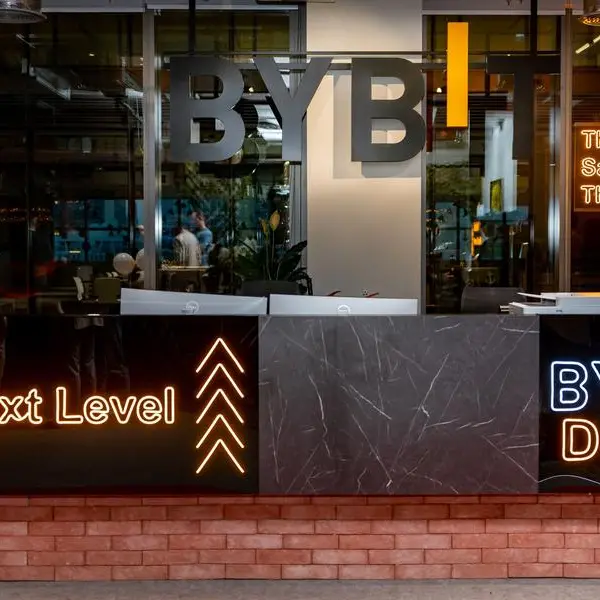- ADNOC achieved industry-leading low carbon intensity of ~7 kgCO2e/boe for upstream operations in 2022, as it responsibly contributed to meeting growing global energy demand
- Building on its legacy as a responsible global energy pioneer, ADNOC is set to increase investments in and double down on its decarbonization efforts, backed by an initial $15 billion allocation to low-carbon solutions
- ADNOC extends open invitation to investors, climate technology providers and industry across all sectors to partner on its journey to supercharge and accelerate decarbonization
- ADNOC is expanding into renewables through its investment in Masdar, which is set to grow its renewable energy portfolio to 100GW by the end of the decade
Abu Dhabi, UAE – ADNOC is accelerating its decarbonization plan to bring forward its net zero ambition to 2045, from its previous target of 2050, and to achieve zero methane emissions by 2030. ADNOC is the first company in its peer group to accelerate its net zero target to 2045.
These new targets mark a new chapter in ADNOC’s transformational journey to a lower-carbon future. The company has placed sustainability at the heart of its long-term strategy, including investing in renewables, building a global hydrogen value chain, deploying innovative climate technology solutions, and advancing nature-based solutions such as planting mangroves in the UAE.
Building on its legacy as a responsible global energy pioneer, ADNOC is set to increase investments in and double down on its decarbonization efforts, backed by an initial $15 billion allocation to low-carbon solutions. The company extends an open invitation to investors, climate technology providers and industry across all sectors to partner on its journey to supercharge and accelerate decarbonization solutions.
In 2022, ADNOC’s upstream carbon intensity performance was ~7 kgCO2e/boe as it responsibly contributed to meeting growing global energy demand. Furthermore, its industry leading methane intensity was ~0.07%, and the company was awarded the Gold Standard Pathway by the Oil and Gas Methane Partnership 2.0.
Additionally, in 2022 ADNOC achieved greenhouse gas (GHG) emissions reductions of ~4mt by using grid energy from solar and nuclear power to supply 100% of its onshore operations as well as ~1mt from energy efficiency and flaring reduction projects. These results, independently assured by DNV*, place ADNOC in the top tier of lowest carbon intensity oil and gas producers in the world.
ADNOC is a key enabler of the UAE’s updated Nationally Determined Contribution (NDC), which raises the ambition of the UAE’s nationwide emissions reduction ambition to 40% by 2030. The company is also playing an important in supporting the UAE’s recently updated Energy Strategy 2050, its new National Hydrogen Strategy and Abu Dhabi’s Climate Change Strategy.
ADNOC’s commitment to sustainability and decarbonization dates back to the company’s founding. Building on billions of dollars of investments in decarbonization and sustainability projects since its inception, ADNOC recently made an initial allocation of $15 billion to expedite the implementation of its key decarbonization initiatives, including carbon capture and storage, electrification, energy efficiency and nature-based solutions. Over the coming months, ADNOC will announce further investments and associated projects that will enable it to meet its updated ambitious decarbonization targets.
ADNOC will drive the global growth of renewable energy and green hydrogen through its shareholding in the Abu Dhabi Future Energy Company (Masdar). Masdar is a leading renewable energy company, targeting a portfolio of more than 100 GW of renewable capacity and the production of 1 million tonnes of green hydrogen by 2030.
ADNOC’s decarbonization plan includes a $3.8 billion, first-of-its-kind at scale, project connecting its offshore operations to clean grid power, which will reduce its offshore carbon footprint by up to 50%. It also includes building a 1 million tonnes per annum low-carbon ammonia production facility to help ADNOC’s customers decarbonize.
This year, ADNOC started two pilot projects to deploy leading climate technologies to capture and permanently store carbon dioxide (CO2) as part of its plan to expand its carbon capture capacity to 5 million tonnes per annum by 2030.
The innovative pilots build on ADNOC’s industry leading carbon capture and storage facility, Al Reyadah, which became the world’s first commercial scale operation to capture emissions from the steel industry when it was completed in 2016. The facility, with the capacity to capture 800,000 tonnes of CO2, has played a pivotal role in advancing carbon capture technology and reducing emissions from industry.
For over 50 years, ADNOC has led the industry in eliminating routine flaring and has deployed leading technologies, advanced monitoring and industry-leading practices to substantially reduce methane emissions across its operations.
ADNOC is delivering on its plan to plant 10 million mangroves by 2030. In 2022, the Company planted 200,000 mangrove seeds using drone technology with the aim to aerially plant a total of 2.5 million mangrove seeds over three years. To date, ADNOC has planted more than two million mangrove seedlings across Abu Dhabi. The company’s efforts support the UAE’s aim to plant 100 million mangroves by 2030.
Last year, ADNOC established a Low Carbon Solutions and International Growth Directorate to identify opportunities and drive forward its decarbonization plans, building off the company’s successful track record of responsibly and reliably supplying energy to the world.
NOTES
1. ADNOC decarbonization initiatives, emissions reduction efforts and low-carbon solutions support the following national strategies:
- The third update of the second NDC under the Paris Agreement and the Ministry of Climate Change and Environment’s comprehensive roadmap to achieving a 40 percent emission reduction by 2030
- The UAE’s updated Energy Strategy 2050, that will see investment of between Dh150 billion and Dh200 billion, reduce carbon emissions and triple the contribution of renewable energy by 2030
- The UAE’s new National Hydrogen Strategy that aims to position the UAE as a leading global producer of hydrogen by 2031
- The UAE’s Net Zero by 2050 Strategic Initiative
- Abu Dhabi Climate Change Strategy
2. To support these national strategies, ADNOC is committed to meeting or exceeding the following targets and ambitions:
- Net zero carbon emissions by 2045
- Zero methane emissions by 2030
- 25% reduction in carbon intensity by 2030
- 5 million tonnes per annum of carbon capture capacity by 2030
- Deliver a world scale 1 million tonnes per annum low-carbon ammonia production facility
3. ADNOC’s leading position as a provider of low-carbon intensity energy will be informed by clear, third-party assured and publicly available emissions data.
4. ADNOC’s 2022 Emissions Data (assured by DNV*):
- Industry leading upstream carbon intensity of ~7 kgCO2e/boe (kilograms of carbon dioxide equivalent per barrel of oil equivalent)
- Industry leading methane intensity of ~0.07%
- Total Scope 1 and 2 upstream GHG emissions of ~24 mtCO2e (million tonnes of carbon dioxide equivalent)
- Abated over ~5mt (million tonnes) of GHG emissions, including ~4mt from utilizing clean energy for onshore operations and ~1mt from energy efficiency and flaring reduction in 2022
-Ends-
About ADNOC
ADNOC is a leading diversified energy and petrochemicals group wholly owned by the Emirate of Abu Dhabi. ADNOC’s objective is to maximize the value of the Emirate’s vast hydrocarbon reserves through responsible and sustainable exploration and production to support the United Arab Emirates’ economic growth and diversification. To find out more, visit: www.adnoc.ae
For media inquiries, please contact: media@adnoc.ae



















